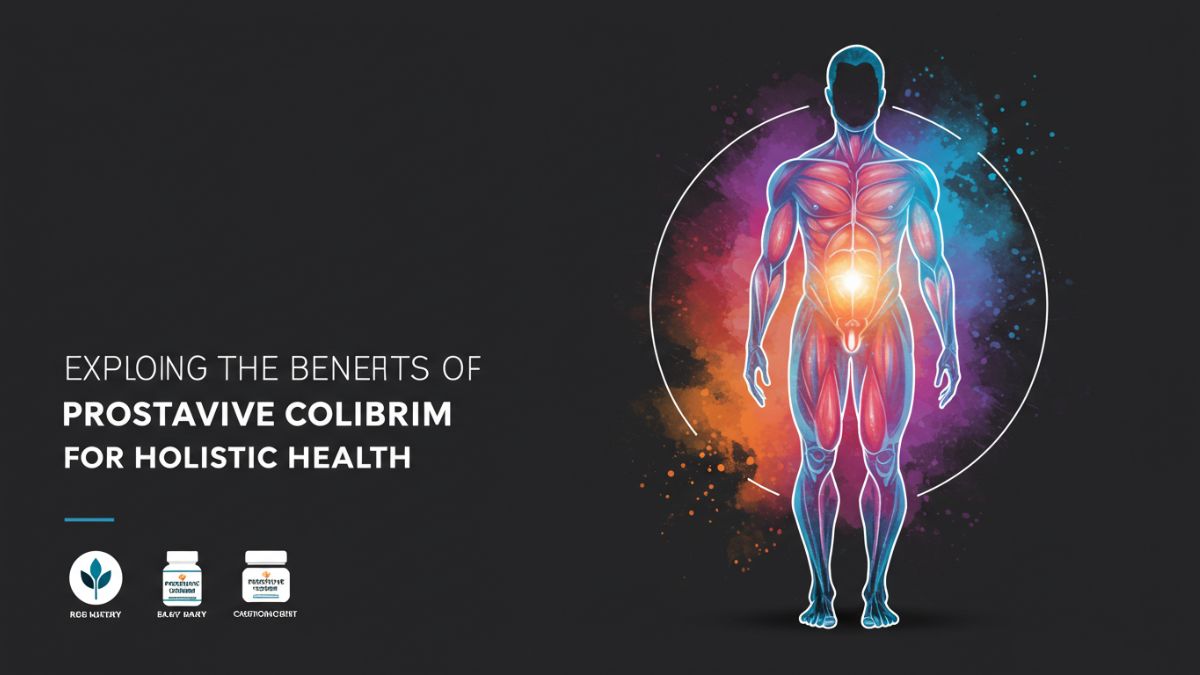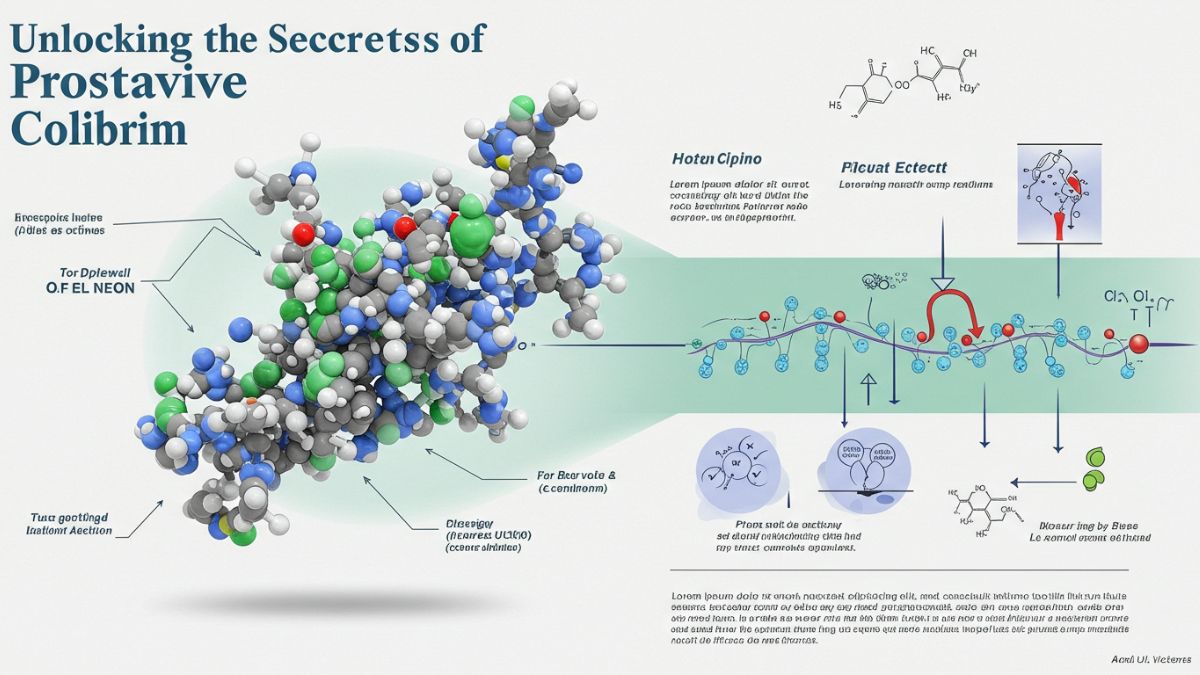HEALTH
A Beginner’s Guide to Detox: What You Need to Know

Embarking on an alcohol detox journey is the first pivotal step towards recovery from alcohol dependence. Detoxification is a process where the body rids itself of toxins accumulated from excessive alcohol consumption. This journey can be challenging but liberating as each step forward signifies progress. Exploring options like a detox in Boulder, Colorado can offer comprehensive support for those seeking a structured environment. Their programs are designed to assist individuals in transitioning away from alcohol dependency while providing professional guidance and care.
Understanding the underlying mechanism of detox can be empowering. It involves allowing the liver to process and eliminate alcohol, which helps restore bodily functions to their natural state. This reset is crucial for both physical health and mental clarity, paving the way for effective recovery and personal growth.
Why Detoxification Is Important
The importance of detoxification cannot be understated. Alcohol is metabolized in the liver, and prolonged consumption can cause build-ups of harmful substances, potentially leading to severe health issues. Detox breaks this cycle, allowing your body to heal and regenerate. It serves as the initial phase of addressing alcoholism and lays the foundation for tackling deeper, psychological aspects of addiction.
Detoxification also sets the stage for further treatment and recovery efforts by providing a clear physical and mental state that is devoid of the direct influences of alcohol. People can start again by getting rid of toxins, which makes it simpler for them to concentrate on counseling, modifying their lifestyles, and making personal pledges to recovery.
Preparing for Detox
Preparation is crucial when planning an alcohol detox. Speak with medical experts to evaluate your circumstances and decide how to proceed. Preparation may involve physical assessments, mental health evaluations, and sometimes, initial treatments to stabilize the condition. A well-rounded preparation ensures that the process is not just reactive, but proactive in catering to your physical or emotional needs.
Creating a personalized plan is key to accommodating individual needs and circumstances. This may include gathering support from friends and family, arranging time away from daily responsibilities, and understanding the triggers and challenges that may arise during detox. Being prepared increases the likelihood of a successful detox experience.
What to Expect During Detox
The detox process varies depending on the level of alcohol dependence. Typically, a medical detox starts under the supervision of healthcare professionals who can monitor vital signs and symptoms, providing interventions when necessary. The first 24 to 72 hours are often when withdrawal symptoms peak. In acute cases, these symptoms can include anxiety, trembling, or more serious ones like seizures. Understanding these potential experiences helps mentally prepare and overcome fears associated with the detox process.
Acquiring knowledge about the phases of detox and the common withdrawal symptoms plays a crucial role in alleviating anxiety. Methods such as guided meditation, relaxation techniques, and supportive affirmations can ease psychological discomfort and encourage a positive mindset during this critical period.
Managing Withdrawal Symptoms
Managing withdrawal symptoms is a critical part of detoxification. In order to ensure patient safety and comfort, medical practitioners may prescribe drugs to treat symptoms. Hydration, nutrition, and restful sleep are important components of symptom management. Having a support system in place can greatly aid in managing these symptoms.
Developing coping strategies through professional guidance, such as therapy or counseling, can further aid in handling the emotional and psychological aspects of withdrawal. Techniques like cognitive-behavioral therapy (CBT) or mindfulness-based approaches help individuals cope with cravings and build resilience against potential relapses. Access to a trusted support network, be it friends, family, or therapy groups, adds comfort during this challenging time.
Post-Detox Care
Completing detox is just the beginning of a longer recovery journey. Post-detox care involves creating a treatment plan that supports continued abstinence and addresses underlying issues related to alcohol use disorder. Options include therapy, support groups, and sometimes medication.
Building a holistic approach to recovery fosters wellness in both mind and body, reducing the risk of relapse. Continuing education on addiction, attending workshops, and staying engaged with a community of peers who understand your journey are essential components of maintaining sobriety. The objective is to establish a sustainable, healthy lifestyle that promotes ongoing recovery.
Building Support Networks
Support networks significantly impact recovery success. Engaging with family, friends, or structured support groups provides encouragement and accountability. Professional networks, including therapists and counselors, offer tailored advice and therapeutic support. Exploring community resources can also facilitate connections with others on similar journeys, reinforcing a shared commitment to recovery and sobriety.
Joining online forums and local support groups or participating in recovery events can help maintain motivation. Such interactions offer a sense of camaraderie and solidarity, essential elements in fostering confidence and a sense of belonging throughout the sober journey. Long-term success in alcohol detox and recovery often hinges on the strength and quality of support networks.
HEALTH
Is Teeth Whitening Safe? What You Should Know

Teeth whitening is one of the most popular cosmetic dental treatments today. It helps remove stains and discoloration, giving you a brighter, more confident smile. However, many people wonder whether teeth whitening is safe and what potential risks it may involve.
Is Teeth Whitening Safe?
Yes, teeth whitening is generally safe when done correctly and under the supervision of a dental professional. However, certain factors determine the safety and effectiveness of the treatment.
1. Professional vs. Over-the-Counter Whitening
- Professional Whitening: Performed by a dentist, this method ensures the safest and most effective results. It uses high-quality bleaching agents while protecting your gums and enamel.
- Over-the-Counter Products: Whitening strips, toothpaste, and gels can be effective but may lead to sensitivity or uneven results if not used properly.
2. Potential Side Effects
While teeth whitening is safe, some people may experience minor side effects, including:
- Tooth Sensitivity: Whitening agents can temporarily make your teeth more sensitive to hot and cold.
- Gum Irritation: If the bleaching agent comes in contact with the gums, it may cause mild irritation.
- Uneven Whitening: Existing dental work like crowns or fillings will not whiten, leading to color inconsistencies.
How to Whiten Teeth Safely
1. Consult a Dentist First
Before starting any whitening treatment, it’s best to consult a dentist to assess your oral health and recommend the best approach.
2. Use ADA-Approved Products
When using at-home whitening kits, always look for products approved by the American Dental Association (ADA) to ensure safety.
3. Follow Instructions Carefully
Overuse of whitening products can damage enamel and cause long-term sensitivity. Always follow the recommended usage guidelines.
4. Maintain Good Oral Hygiene
To keep your teeth naturally white:
- Brush twice a day with fluoride toothpaste.
- Floss daily to remove plaque buildup.
- Avoid foods and drinks that stain teeth, such as coffee, tea, and red wine.
Teeth Whitening for Younger Patients
Teeth whitening is generally not recommended for children and teenagers, as their enamel is still developing. If you’re considering whitening options for your child, consult a Pediatric Dentist in Fredericksburg, VA to explore safe alternatives.
Conclusion
Teeth whitening is a safe and effective way to enhance your smile when done correctly. Professional treatments offer the best results with minimal risks, while at-home options should be used cautiously. Always consult a dentist before starting any whitening regimen to ensure the safety and health of your teeth.
HEALTH
Exploring the Benefits of Prostavive Colibrim for Holistic Health

Enter prostavive colibrim, a supplement designed to support holistic health by focusing on prostate health through natural and complementary ingredients. But what exactly sets Prostavive Colibrims apart, and why is it rapidly gaining popularity? This post unpacks the key benefits, addresses common questions, and explores how this formula aligns with a holistic approach to health.
If you’re looking to take charge of your wellness in a comprehensive way, read on to discover how Prostavive Colibrims can play a role in your overall health strategy.
Why Prostate Health Should Be a Priority in Holistic Wellness
When we talk about holistic health, we mean the balance of the mind, body, and spirit. Prostate health is an often-overlooked piece of this puzzle. This small gland plays a significant role in men’s reproductive health, as well as urinary function. However, as men age, the prostate gland becomes prone to issues such as inflammation, benign prostatic hyperplasia (BPH), and other complications.
By prioritizing prostate health, men can improve not only physical wellness but also their mental well-being. After all, ongoing discomfort, frequent urination, and other symptoms have the potential to disrupt sleep, lower confidence, and create long-term health consequences.
Prostavive Colibrim provides a proactive and natural solution, aligning with the principles of holistic health by addressing the root causes of these issues instead of just their symptoms.
What Is Prostavive Colibrim?
Prostavive Colibrim is a dietary supplement made with natural, scientifically-backed ingredients designed to promote prostate health while supporting overall wellness. It combines the best of herbal medicine and modern nutrition science, providing targeted support for the prostate while delivering additional health benefits like enhanced energy and reduced inflammation.
Unlike conventional treatments for prostate concerns, Prostavive Colibrims focuses on prevention and long-term care by incorporating ingredients known for their ability to address oxidative stress, improve immune health, and maintain hormonal balance.
Key Benefits of Prostavive Colibrim
1. Supports Prostate Function
A healthy prostate translates to better urinary flow, reduced nocturnal urination, and a stronger sense of comfort throughout the day. Prostavive Colibrim’s carefully curated formula includes plant-based ingredients that help reduce inflammation, shrink an enlarged prostate, and maintain healthy function over time.
2. Reduces Chronic Inflammation
Chronic inflammation is a significant contributor to prostate issues, whether it’s BPH or prostatitis. Prostavive Colibrims incorporates powerful anti-inflammatory compounds like beta-sitosterol and saw palmetto extract to decrease inflammation at its source.
3. Promotes Hormonal Balance
Aging leads to hormonal shifts, including imbalances in testosterone and dihydrotestosterone (DHT) levels, which can negatively impact the prostate. Prostavive Colibrim helps balance these hormones naturally, mitigating the risk of further complications.
4. Boosts Immune System Health
Your immune system fights toxins, pollutants, and free radicals that can worsen prostate issues. Ingredients like zinc, selenium, and vitamin E in Prostavive Colibrims not only promote immunity but also aid cellular repair.
5. Enhances Holistic Energy
By targeting inflammation and oxidative stress, Prostavive Colibrim helps improve overall energy levels, leaving you feeling revitalized and more in control of your body.
6. Fewer Side Effects Than Traditional Treatments
Some conventional medications prescribed for prostate health may come with unwanted side effects, such as dizziness, headaches, or even a lower libido. Prostavive Colibrims provides a more natural alternative to aid in symptom relief without compromising overall well-being.
How Does Prostavive Colibrim Work?
Prostavive Colibrim works by addressing the root causes of prostate challenges and leveraging its nutritional properties for holistic health benefits. Here’s how its core ingredients perform:
- Saw Palmetto Extract – A widely respected herb in prostate health, saw palmetto works to reduce symptoms of BPH, relax the bladder, and support healthy hormone levels.
- Beta-Sitosterol – Found in various fruits and vegetables, this plant compound improves urinary flow and supports prostate health by combating inflammation.
- Zinc and Selenium – These essential minerals play a vital role in DNA repair while boosting immune function.
- Vitamin E – Known for its antioxidant properties, vitamin E fights free radicals, reducing the damage caused by oxidative stress.
- Plant-Based Omega Fatty Acids – These naturally occurring fats help reduce inflammation while improving cardiovascular health—another vital aspect of holistic wellness.
Together, these ingredients provide a multi-pronged approach to addressing prostate health concerns.
How to Incorporate Prostavive Colibrim into Your Routine
Introducing Prostavive Colibrims into your daily schedule is simple. Take the recommended dosage (as outlined on the product’s packaging) alongside a balanced diet and plenty of water. Want to further enhance its effects? Pair it with these practices:
- Regular Exercise: Physical activity improves circulation and helps keep body systems—including the prostate—functioning optimally.
- Eating a Plant-Rich Diet: Incorporate foods high in antioxidants and healthy fats, such as berries, leafy greens, and nuts.
- Stress Management: High stress levels can aggravate inflammation. Mindfulness practices like meditation and yoga can help.
What Sets Prostavive Colibrim Apart?
What makes Prostavive Colibrim stand out in a crowded market of wellness supplements?
- Natural Ingredients: You’ll find no synthetic additives or fillers here.
- Scientifically Backed Formula: Every ingredient is carefully selected based on clinical research.
- Holistic Approach: Prostavive Colibrims goes beyond treating prostate symptoms by promoting overall health and wellness.
- Customer Satisfaction: Numerous testimonials praise the supplement for its efficiency and noticeable results.
Real-Life Testimonials
“I’ve tried many products over the years, but Prostavive Colibrim truly changed my life—no more sleepless nights or constant bathroom trips.” – James T., 52.
“I was skeptical at first, but I’ve noticed a significant improvement after just two months. It’s a game-changer for my energy and focus too!” – Alan K., 47.
Is Prostavive Colibrim Right for You?
If you’re someone aiming to take charge of their prostate health while supporting holistic well-being, Prostavive Colibrim may be exactly what you’re looking for. Its commitment to natural, scientifically backed solutions ensures you’re giving your body the best tools to thrive.
Things to Consider Before Starting
Before beginning a new supplement, consult with your healthcare professional, especially if you’re currently taking medication or managing any chronic conditions. A doctor can help confirm whether Prostavive Colibrims is the right fit for your health routine.
Conclusion
Prostavive Colibrim offers a natural and effective approach to supporting prostate health and overall wellness. With its scientifically formulated ingredients and dedication to quality, it provides a trustworthy option for men seeking to improve their health. Remember, adopting a holistic health routine that includes a balanced diet, regular exercise, and proper medical guidance complements the benefits of supplements like Prostavive Colibrims. Take the step toward prioritizing your well-being today!
FAQ’s
1. What is Prostavive Colibrim used for?
Prostavive Colibrim is a dietary supplement designed to support prostate health and overall wellness in men. Its natural ingredients target common prostate concerns, promoting improved urinary function and comfort.
2. How should I take Prostavive Colibrim?
It is recommended to follow the dosage instructions provided on the product label or consult with your healthcare provider for personalized advice. Typically, taking the supplement with a meal and water is advised for optimal absorption.
3. Are there any side effects?
Prostavive Colibrim is formulated with natural ingredients, minimizing the likelihood of side effects. However, some individuals may experience mild reactions depending on their specific sensitivities. Always consult your doctor if you have concerns or are taking other medications.
HEALTH
Unlocking the Secrets of prostavive colibrim: Uses, Effects, and More

Prostavive colibrim has emerged as a prominent name in the wellness landscape, particularly for those seeking to support prostate health. But what exactly is Prostavive Colibrims? How does it work, and what benefits can it offer? Whether you’re exploring it for yourself or researching on behalf of a loved one, this comprehensive guide will walk you through its uses, effects, and key benefits. By the end, you’ll have a clear understanding of how it may fit into your wellness routine.
What is Prostavive Colibrim?
Prostavive Colibrim is a specialized dietary supplement designed to support prostate health. Crafted with natural, science-backed ingredients, it aims to address common prostate health concerns that men often face as they age. With a focus on inflammation reduction and urinary health, Prostavive Colibrims is becoming a sought-after choice for men looking to improve their overall well-being.
At its core, Prostavive Colibrims combines traditional herbal knowledge with modern research. This fusion not only ensures its safety but also maximizes efficacy, making it a trusted option for prostate care.
Why is Prostate Health Important?
The prostate is a small gland that plays a significant role in male reproductive health. However, with age, men may encounter challenges such as prostate enlargement, discomfort, or urinary difficulties. Studies show that around 50% of men over 50 will experience some degree of prostate health issues, with the number increasing as they age.
Unmanaged prostate concerns can lead to lifestyle disruptions, decreased comfort, and even impact confidence. Prostavive Colibrims is specifically formulated to address these concerns, allowing men to take proactive steps in maintaining a high quality of life.
Core Ingredients of Prostavive Colibrim
One of the standout features of Prostavive Colibrim is its carefully selected ingredients. Each component is included for its contribution to prostate health and overall well-being. Here is a breakdown of key ingredients and their benefits:
Saw Palmetto Extract
- What it does: Known for its potential to reduce symptoms associated with benign prostatic hyperplasia (BPH), Saw Palmetto may help minimize frequent urination and support comfortable bladder control.
- Scientific backing: Research has shown that Saw Palmetto can inhibit the enzyme responsible for DHT production, which contributes to prostate enlargement.
Beta-Sitosterol
- What it does: This plant compound is widely praised for its ability to improve urinary flow and reduce inflammation within the prostate.
- Scientific backing: Studies suggest that Beta-Sitosterol significantly improves symptoms of BPH, making it a core component of many prostate health supplements.
Zinc
- What it does: Zinc is vital for maintaining prostate tissue integrity and overall immune health.
- Scientific backing: Men with prostate health challenges often show lower zinc levels, highlighting its importance for supplementation.
Pygeum Africanum
- What it does: Derived from African prune tree bark, Pygeum Africanums has anti-inflammatory properties that ease urinary symptoms.
- Scientific backing: Clinical studies reveal that Pygeum is effective in reducing prostate-related discomfort and enhancing urinary function.
Pumpkin Seed Oil
- What it does: Packed with antioxidants and essential fatty acids, pumpkin seed oil supports urinary tract health and reduces inflammation.
- Scientific backing: Research indicates that pumpkin seed oil significantly benefits men with urinary difficulties related to an enlarged prostate.
Prostavive Colibrims formula is rounded out with herbal extracts, vitamins, and minerals that work synergistically to offer a holistic approach to prostate health.
Benefits of Prostavive Colibrim
Prostavive Colibrim not only supports prostate health but brings several additional benefits to the table. Here are some of the standout advantages:
1. Improved Urinary Function
Difficulty in urination, frequent bathroom trips, and nighttime awakenings are common issues for men with prostate concerns. Prostavive Colibrims helps address these by improving urinary flow and bladder control.
2. Reduced Prostate-Related Discomfort
The anti-inflammatory properties of its ingredients provide relief from prostate-associated discomfort, fostering day-to-day comfort and uninterrupted sleep.
3. Hormonal Balance
With its ability to inhibit DHT—a hormone linked to prostate issues—Prostavive Colibrims contributes to better hormonal regulation and overall health.
4. Natural and Safe Formula
Prostavive Colibrim is free from harmful chemicals or synthetic additives. Its natural composition ensures it is gentle on the body and safe for long-term use.
5. Enhanced Overall Wellness
With additional benefits such as immune support, improved energy levels, and antioxidant protection, Prostavive Colibrims is more than just a prostate health supplement—it’s a comprehensive wellness tool.
How to Use Prostavive Colibrim
For optimal results, Prostavive Colibrim is typically taken as a once-daily supplement. It is recommended to follow the dosage instructions provided on the label or as advised by your healthcare professional. Consistency is key in seeing results, so make Prostavive Colibrims a part of your daily routine.
Tips for Maximizing Benefits:
- Pair Prostavive Colibrim with a balanced diet rich in whole foods and low in processed sugars.
- Stay hydrated and incorporate regular exercise, as both contribute to prostate and overall health.
- Consider regular check-ins with your healthcare provider to monitor progress.
Are There Any Side Effects?
Prostavive Colibrim is formulated with safety in mind and features naturally derived ingredients. Most users report no significant side effects. However, as with any supplement, some individuals may experience mild symptoms such as stomach discomfort or allergic reactions. If you have any concerns or pre-existing health conditions, consult with a healthcare professional before use.
Is Prostavive Colibrim Right for You?
If you’re a man looking to take control of your prostate health, Prostavive Colibrim could be the solution you’ve been searching for. It is particularly beneficial for:
- Those experiencing urinary difficulties or enlarged prostate symptoms.
- Individuals seeking a natural approach to prostate care.
- Men prioritizing overall wellness and aiming to improve their quality of life.
When combined with a proactive health regimen, Prostavive Colibrims offers a reliable pathway to prostate health and beyond.
Take the Next Step Toward Prostate Health
Propathy concerns are common but manageable. With Prostavive Colibrims, you can make a proactive choice toward improved well-being and comfort. Its powerful blend of scientifically-backed ingredients offers real-world benefits for those seeking better prostate health.
Conclusion
Investing in your health is one of the most significant decisions you can make, and Prostavive Colibrim is here to support you every step of the way. Its advanced formulation, rooted in science and care, empowers you to take control of your prostate health with confidence. Don’t wait for discomfort to disrupt your life—start building a foundation of wellness today. Choose Prostavive Colibrim and experience the tangible benefits of a healthier, more balanced future. With the right tools and commitment, improved prostate health is within your reach.
FAQ’s
What is Prostavive Colibrim?
Prostavive Colibrim is a scientifically formulated supplement designed to support and promote optimal prostate health. It leverages natural ingredients to help reduce discomfort and enhance overall well-being.
How do I take Prostavive Colibrim?
For best results, take the recommended dosage provided on the packaging or as directed by your healthcare professional. Consistency is key to experiencing its full benefits.
Are there any side effects?
Prostavive Colibrim is made with carefully selected natural ingredients and is generally well-tolerated. However, as with any supplement, consult your healthcare provider before use, especially if you have existing medical conditions or take other medications.
-

 GENERAL1 year ago
GENERAL1 year agoDiscovering the Artistic Brilliance of Derpixon: A Deep Dive into their Animation and Illustration
-

 Posts1 year ago
Posts1 year agoSiegel, Cooper & Co.
-

 Lifestyle1 year ago
Lifestyle1 year agoPurenudism.com: Unveiling the Beauty of Naturist Lifestyle
-

 Lifestyle1 year ago
Lifestyle1 year agoBaddieHub: Unleashing Confidence and Style in the Ultimate Gathering Spot for the Baddie Lifestyle
-

 HEALTH1 year ago
HEALTH1 year agoTransformative Health Solutions: Unveiling the Breakthroughs of 10x Health
-

 Entertainment1 year ago
Entertainment1 year agoGeekzilla Podcast: Navigating the World of Pop Culture, Gaming, and Tech
-

 Entertainment1 year ago
Entertainment1 year agoKhatrimaza Unveiled: Exploring Cinematic Marvels and Entertainment Extravaganza
-

 BUSINESS1 year ago
BUSINESS1 year agoUnlocking the Secrets to Jacqueline Tortorice Remarkable Career and Accomplishments
